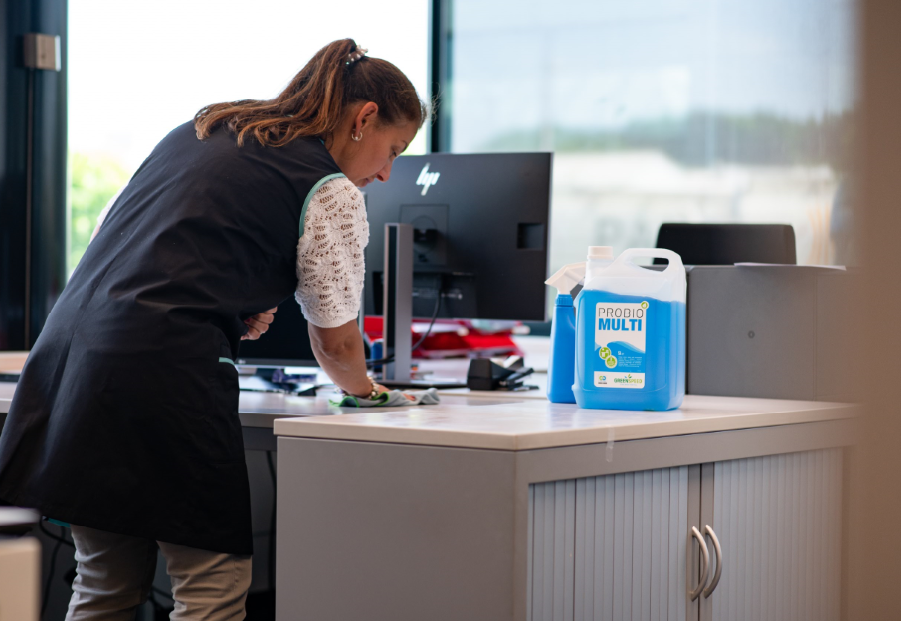‘We passed the external ISO 14001:2015 environmental audit’. Nice, but what does this mean exactly? Through 7 questions we will introduce you to the international ISO 14001 standard.
1. What does ‘ISO 14001-certified’ mean?
The ISO 14001 standard sets a number of requirements that a company’s environmental management system must meet. If it complies with them, the company can clarify, control and reduce its environmental impact. ISO 14001 is thus a useful management system for evaluating, improving and reporting on environmental performance and monitoring compliance with environmental legislation. Those who comply with this standard pay constant attention to environment-related aspects. Such as the use of natural resources, energy consumption and waste. Companies that have obtained the ISO 14001 certificate give the environment the attention it deserves.

2. Since when has the ISO 14001 standard existed?
ISO 14001 has existed since 1996. At the beginning of the 1990s, the International Standardisation Organisation (ISO) started an enquiry into the usefulness of an international standard for environmental care in companies. The need for this was soon confirmed. In 1993, ISO set up a committee, which presented the standard ‘ISO 14001 Environmental Management Systems’ three years later.
3. Where does the addition ‘:2015’ come from?
The 2015 revision (hence the addition ‘:2015’) is the second revision of the standard. There was a previous revision in 2004. The 2015 revision adapts the ISO 14001 standard to the so-called ‘High Level Structure’ (HLS), a kind of general framework that aligns all ISO standards.
4. ISO 14001 is an international standard. What about national environmental legislation?
ISO 14001 is a worldwide standard. It is therefore independent of national legislation. However, one of the requirements of the standard is that a company follows the national regulations.
5. ISO 14001 in Belgium?
The official name of the standard in Belgium is ‘NBN EN ISO 14001:2015’.
- NBN is the Bureau for Standardisation, which is responsible in our country for the publication of international and European standards.
- EN refers to the European publication of this international ISO standard.
6. Who performs the audit?
Although the standard has been developed by the International Standardisation Organisation (ISO), this organisation does not award certificates itself. NBN is not authorised to do so either. The audit and possible certification are done by independent certification institutes.
7. How many companies have an ISO 14001 certificate?
According to the most recent available figures from ISO, in 2019 there were 312,580 companies worldwide in possession of an ISO 14001 certificate. 992 of them are located in Belgium, including Cleaning Masters. That’s not that many, since the standard is intended for any company that has an impact on the environment. Any company, in other words. Most ISO 14001-certified companies are located in East Asia and Europe. In Canada, for example, only 844 companies are certified. That is less than in Belgium, even though Canada has more than 330 times the surface area of Belgium.
The ISO 14001 standard is the second most popular standard worldwide. Only the ISO 9001 quality standard scores better. Worldwide, 883,521 companies are in possession of this certificate, in Belgium there are 2,873, including three divisions of the Multi Masters Group: Cleaning Masters, Hygi Masters and Security Masters.
Want to know more about the sustainable initiatives of Cleaning Masters and Multi Masters Group? Be sure to read the articles about:
- The dune gazelle
- River Skimmer
- Made Blue
